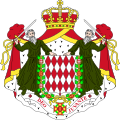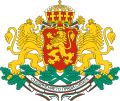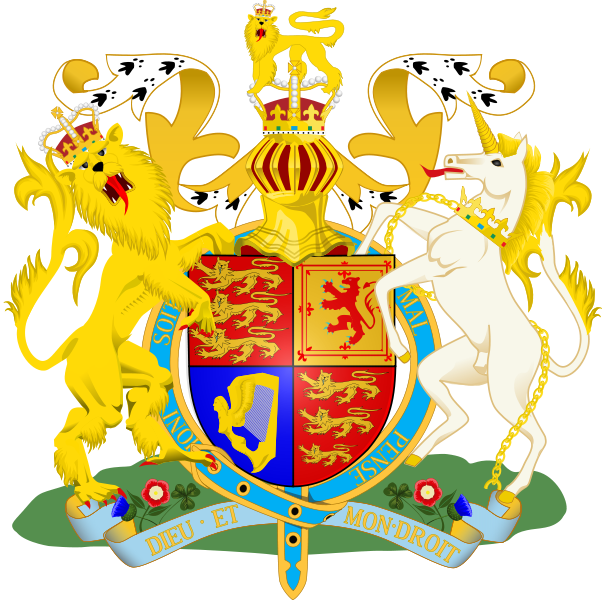Difference between revisions of "Coat of Arms"
| Line 1: | Line 1: | ||
http://i169.photobucket.com/albums/u214/Lindenpublic/park%20herldry/Symbols/120px-Coat_of_Arms_of_Latviasvg.png http://i169.photobucket.com/albums/u214/Lindenpublic/park%20herldry/Symbols/120px-Coat_of_arms_of_Monacosvg.png http://i169.photobucket.com/albums/u214/Lindenpublic/park%20herldry/Symbols/120px-Bulgaria_COAsvg.png | http://i169.photobucket.com/albums/u214/Lindenpublic/park%20herldry/Symbols/120px-Coat_of_Arms_of_Latviasvg.png http://i169.photobucket.com/albums/u214/Lindenpublic/park%20herldry/Symbols/120px-Coat_of_arms_of_Monacosvg.png http://i169.photobucket.com/albums/u214/Lindenpublic/park%20herldry/Symbols/120px-Bulgaria_COAsvg.png | ||
| + | ===In a Coat of Arms=== | ||
| + | A coat of arms is often as unique as an individual. Bearing symbols of their family or personal experience. Coat of arms is a representation of the [[Blazon]], which is a listing of instructions on how to depict the [[Emblazon]], which is another word for any physical representation of arms. | ||
| − | + | The elements in all arms are located roughly in the same places. The [[Crest]] sits a top the [[Wreath]] on top of the [[Helm (Heraldry)|Helm]]. The [[Shield (Heraldry)| Shield]] is just below the helm surrounded by the [[Mantling]] issuing from the wreath and sometimes [[supporters]]. The [[compartment]] is just below the shield and above the [[motto]]. On the shield is where the magic happens. There you will find the [[[tinctures]], the [[Charges]] and all the things that made up the classic heraldry. The badge if included is almost always below entire affair, some where under the motto. | |
| − | + | ||
| + | An example; the UK Royal Coat of Arms | ||
| + | |||
| + | http://i169.photobucket.com/albums/u214/Lindenpublic/park%20herldry/Symbols/UK_Royal_Coat_of_Armssvg.png | ||
| − | + | And here; it's [[Blazon]]<br> | |
| + | ''Quarterly, first and fourth [[Gules]] three lions passant gardant in pale [[Or]] armed and langued [[Azure]] (for England), second quarter [[Or]] a lion rampant within a double tressure flory-counter-flory [[Gules]] (for Scotland), third quarter [[Azure]] a harp [[Or]] stringed [[Argent]] (for Ireland), the whole surrounded by the Garter; for a [[Crest]], upon the Royal helm the imperial crown Proper, thereon a lion statant gardant Or imperially crowned Proper; for [[Supporters]], [[dexter]] a lion rampant gardant Or crowned as the Crest, [[sinister]] a unicorn Argent armed, crined and unguled Proper, gorged with a [[coronet]] Or composed of crosses patée and fleurs de lis a chain affixed thereto passing between the forelegs and reflexed over the back also Or. [[Motto]] 'Dieu et mon Droit' in the [[compartment]] below the shield, with the Union rose, shamrock and thistle engrafted on the same stem. | ||
| + | '' | ||
| − | ===Parts of a coat of Arms=== | + | ====Parts of a coat of Arms==== |
*[[Badge]] | *[[Badge]] | ||
*[[Crest]] | *[[Crest]] | ||
| Line 18: | Line 25: | ||
*[[Motto]] | *[[Motto]] | ||
*[[Supporter (Heraldry)|Supporter]] | *[[Supporter (Heraldry)|Supporter]] | ||
| + | |||
| + | ===Coat of Arms in History=== | ||
| + | In the heraldic traditions of England and Scotland an individual, rather than a family, had a coat of arms. In those traditions coats of arms are legal property transmitted from father to son, and are used only by one person at any given time. Other descendants of the original bearer could bear the ancestral arms only with some difference: usually a color change or the addition of a distinguishing [[charge]]. One such charge is the label, which in British usage (outside the royal family) is now always the mark of an heir-apparent. | ||
| + | |||
| + | Because of their importance in identification, particularly in seals on legal documents, the use of arms was strictly regulated; few countries continue in this today. This has been carried out by heralds and the study of coats of arms is therefore called "heraldry." Some other traditions (e.g. Polish) are less restrictive — allowing, for example, all members of a dynastic house or family to use the same arms, although one or more elements may be reserved to the Head of the House. | ||
| + | |||
[[Category:Heraldry Terms]] | [[Category:Heraldry Terms]] | ||
Revision as of 14:33, 13 November 2007



In a Coat of Arms
A coat of arms is often as unique as an individual. Bearing symbols of their family or personal experience. Coat of arms is a representation of the Blazon, which is a listing of instructions on how to depict the Emblazon, which is another word for any physical representation of arms.
The elements in all arms are located roughly in the same places. The Crest sits a top the Wreath on top of the Helm. The Shield is just below the helm surrounded by the Mantling issuing from the wreath and sometimes supporters. The compartment is just below the shield and above the motto. On the shield is where the magic happens. There you will find the [[[tinctures]], the Charges and all the things that made up the classic heraldry. The badge if included is almost always below entire affair, some where under the motto.
An example; the UK Royal Coat of Arms

And here; it's Blazon
Quarterly, first and fourth Gules three lions passant gardant in pale Or armed and langued Azure (for England), second quarter Or a lion rampant within a double tressure flory-counter-flory Gules (for Scotland), third quarter Azure a harp Or stringed Argent (for Ireland), the whole surrounded by the Garter; for a Crest, upon the Royal helm the imperial crown Proper, thereon a lion statant gardant Or imperially crowned Proper; for Supporters, dexter a lion rampant gardant Or crowned as the Crest, sinister a unicorn Argent armed, crined and unguled Proper, gorged with a coronet Or composed of crosses patée and fleurs de lis a chain affixed thereto passing between the forelegs and reflexed over the back also Or. Motto 'Dieu et mon Droit' in the compartment below the shield, with the Union rose, shamrock and thistle engrafted on the same stem.
Parts of a coat of Arms
Coat of Arms in History
In the heraldic traditions of England and Scotland an individual, rather than a family, had a coat of arms. In those traditions coats of arms are legal property transmitted from father to son, and are used only by one person at any given time. Other descendants of the original bearer could bear the ancestral arms only with some difference: usually a color change or the addition of a distinguishing charge. One such charge is the label, which in British usage (outside the royal family) is now always the mark of an heir-apparent.
Because of their importance in identification, particularly in seals on legal documents, the use of arms was strictly regulated; few countries continue in this today. This has been carried out by heralds and the study of coats of arms is therefore called "heraldry." Some other traditions (e.g. Polish) are less restrictive — allowing, for example, all members of a dynastic house or family to use the same arms, although one or more elements may be reserved to the Head of the House.